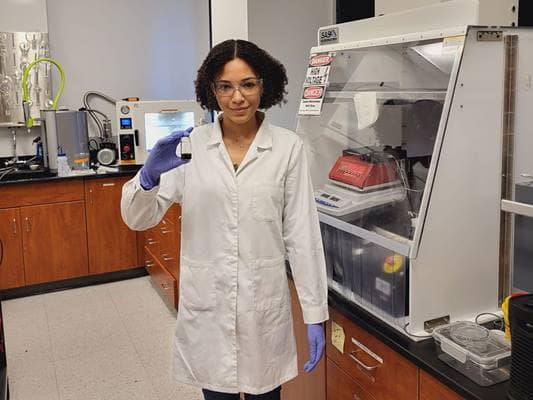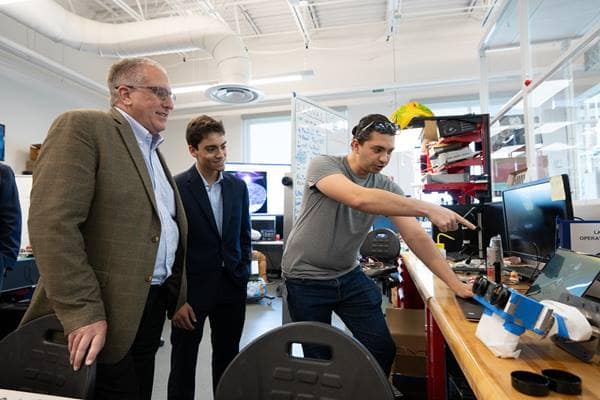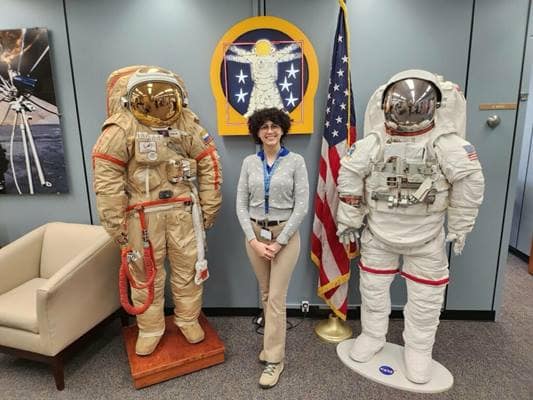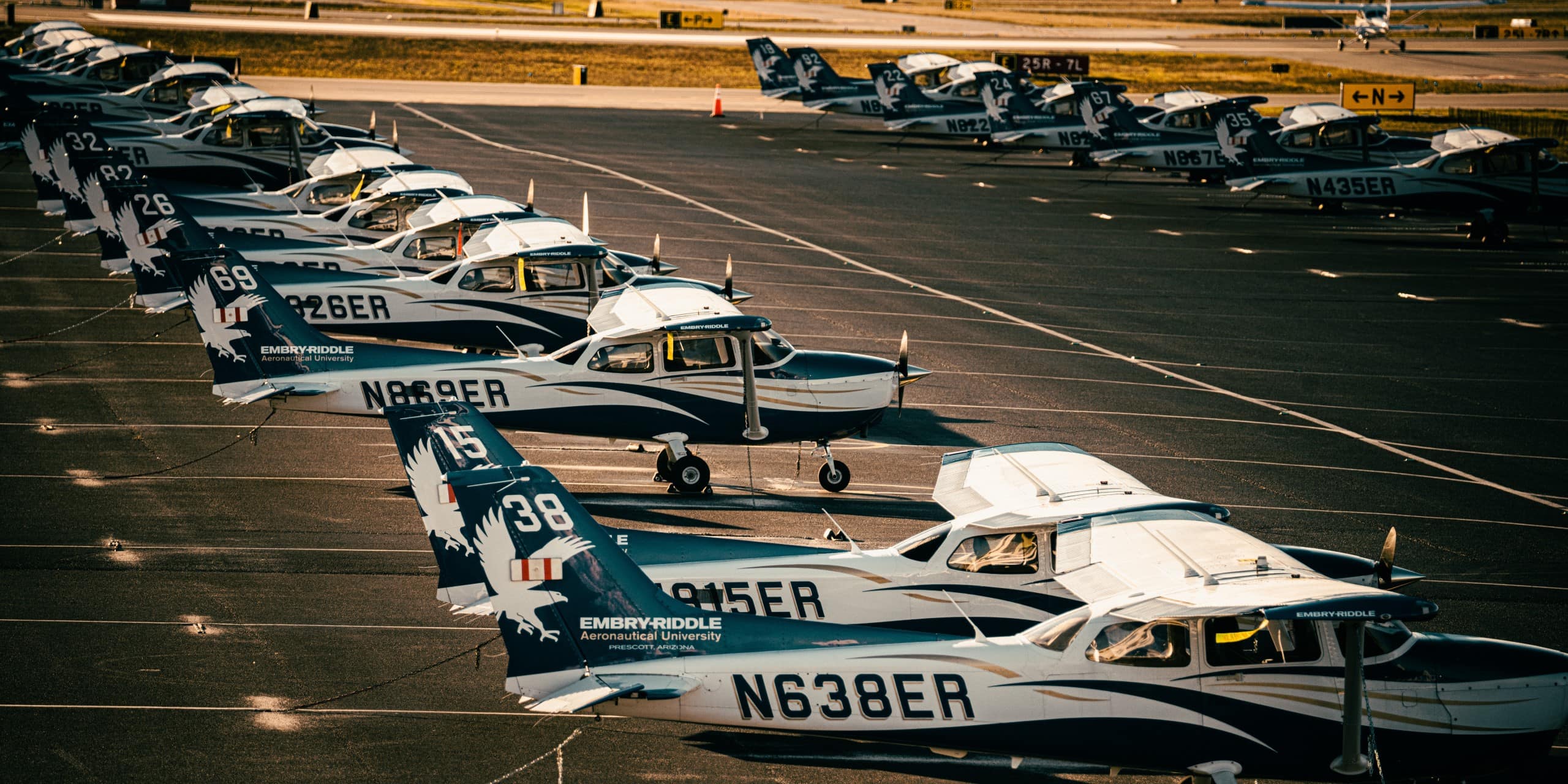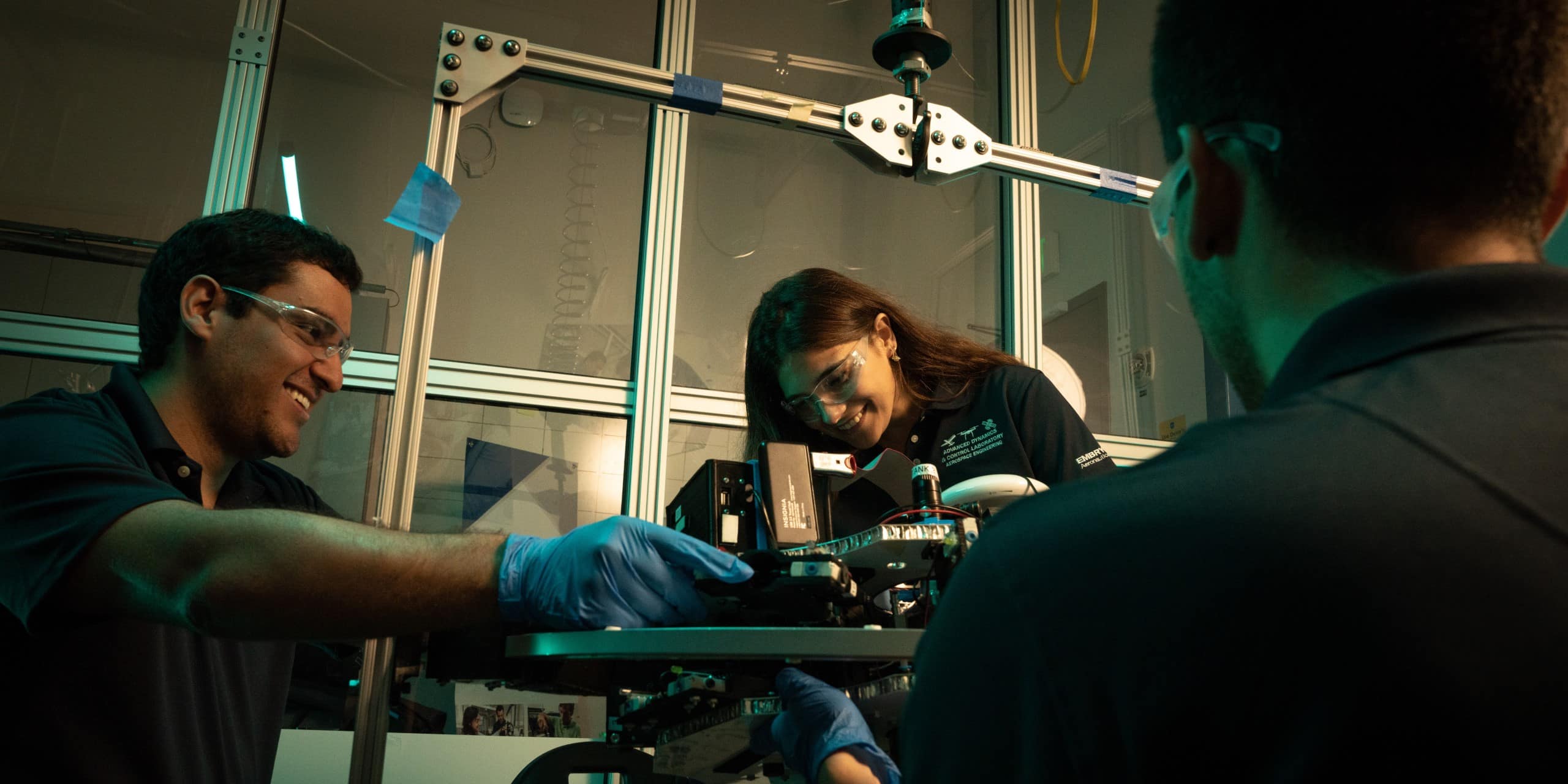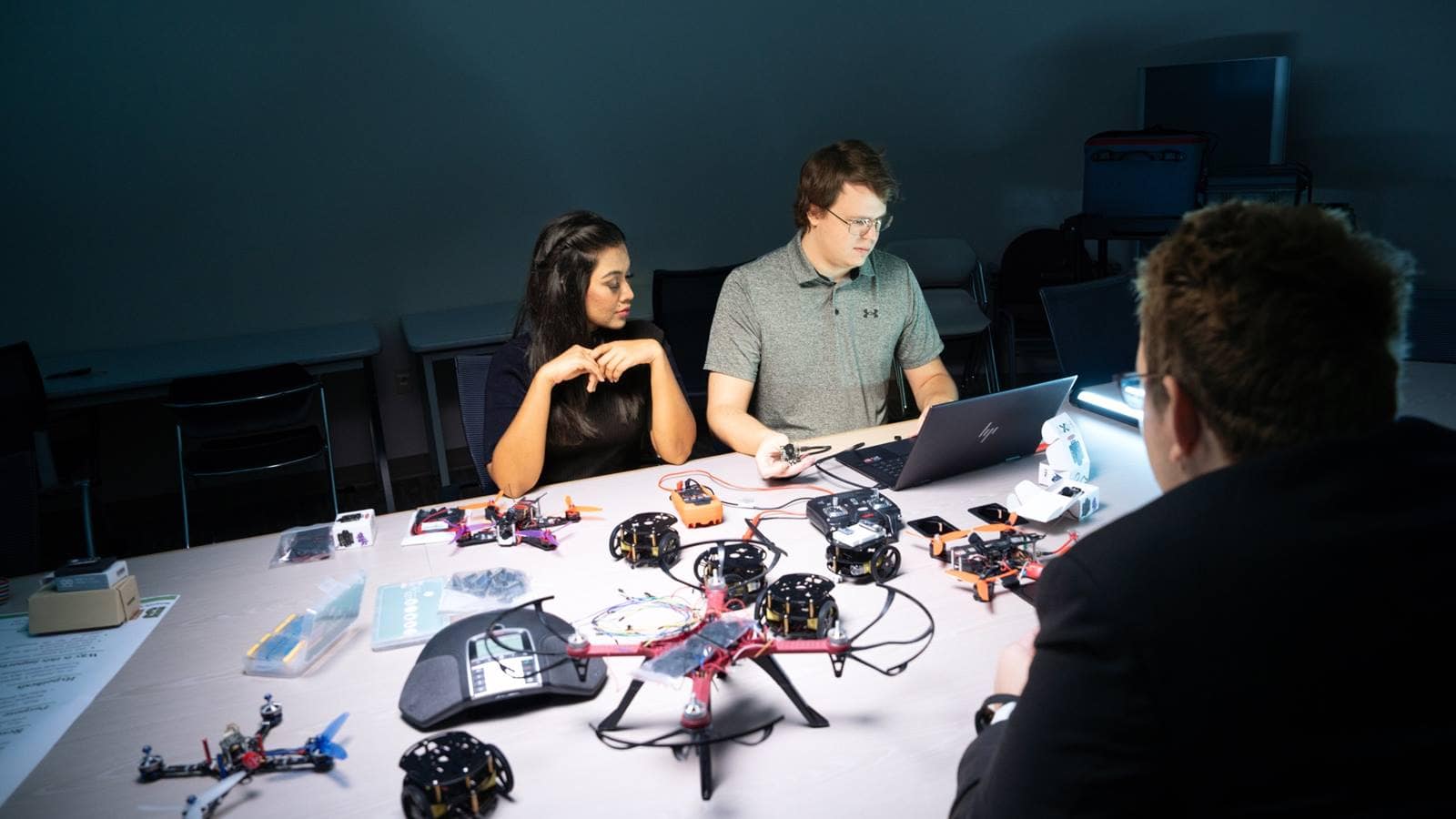
Master of Science in
Uncrewed and Autonomous Systems Engineering
This innovative program is among the first — and still one of the few — that allows students to focus on the engineering of unmanned and autonomous systems.
About the Master of Science in Uncrewed and Autonomous Systems Engineering
Embry‑Riddle is a pioneering institution in uncrewed and robotics education. In the Master of Science in Uncrewed and Autonomous Systems Engineering, a student’s prior engineering education and interest in uncrewed flight is the ideal combination to take their career to the next level. Whether students are recent graduates or working professionals, this degree will help them transition into new, exciting roles in the burgeoning field of uncrewed systems.
Students benefit from small class sizes and hands-on learning as they proceed through the Uncrewed and Autonomous Systems Engineering (MSUASE) curriculum. Beyond the aircraft focus, students will study autonomous systems related to automobiles and drones, surface and undersea marine vessels and spacecraft.
Student Learning Outcomes
What you will learn while pursuing a UASE degree:
- Apply fundamental engineering practices to analyze, design and support the implementation and development of uncrewed and/or autonomous systems
- Apply knowledge of advanced topics in uncrewed and autonomous systems engineering
- Communicate effectively on issues pertaining to uncrewed and autonomous systems
Uncrewed and Autonomous Systems Engineering Career Opportunities
Careers and Employers
Autonomous Systems Engineering master's graduates often secure positions in fields such as automation engineering, software engineering, software verification engineering and 3D simulation engineering.
UAS master's degree graduates tend to enter the industry with companies such as:
- Collins Aerospace
- Iris Automation
- DinoPlusAI
- Radiance Technlogies, Inc.
Uncrewed and Autonomous Systems Engineering Salary Information
As of 2023, graduates with a degree in uncrewed systems tend to receive competitive salaries, with an average income of $84,602 annually.
DETAILS
This offering is available at the following campuses. Select a campus to learn more.





